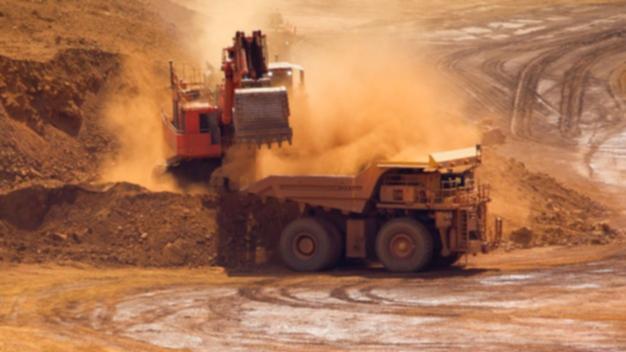BHP’s 2024 carbon emissions to rise as it rejects hydrogen and hybrids for electric trucks

Investors have been warned that BHP’s carbon footprint will get worse before it gets better, as the Big Australian also flags that it might not reach net zero greenhouse gas emissions by 2050.
Electric excavators and battery haul trucks, not hydrogen or hybrid options, are preferred to displace diesel in iron ore mining, BHP says.
However, the diversified miner told investors on Wednesday that the company’s carbon footprint will get worse before it gets better as commodity production ramps up to meet global demand.
Sign up to The Nightly's newsletters.
Get the first look at the digital newspaper, curated daily stories and breaking headlines delivered to your inbox.
By continuing you agree to our Terms and Privacy Policy.“It’s not going to be a straight line”, climate vice-president Graham Winkelman said, as the company grows to meet increasing global demand for its commodities, particularly Australian iron ore for making steel.
BHP was on track for a “credible” financial year 2030 target of at least a 30 per cent reduction in operational greenhouse gas emissions compared with 2020, but emissions would rise for the current financial year, he reiterated.
Dan Heal, vice president of operational decarbonisation, said BHP would go “straight to a battery electric truck” as a diesel replacement in its sprawling Pilbara iron ore hub,
He said retrofitting was an option but the transition would mostly be achieved via fleet replacement.
Meanwhile, doubts were cast on the miner’s ability to reach net zero emissions by 2050 as carbon credits would be needed to achieve the net zero goal, BHP conceded.
“We are likely to source and relinquish carbon credits in coming years to meet compliance obligations under Australia’s safeguard mechanism,” Dr Winkelman said.
But BHP would not count those “compliance carbon credits” towards achievement of the 2030 target, he said.
The timeline for BHP to start trialling electric trains and trucks has also slipped, but the Big Australian remains steadfast on its 2030 commitment of reducing greenhouse gas emissions by at least 30 per cent compared to 2020 levels.
Last year BHP stated it was aiming for an operational trial of its Komatsu trucks during 2025 and Caterpillar trucks in 2024.
The Caterpillar target has been hit but the Komatsu goalpost has been pushed out to 2026.
Trails for both its Wabtec and Progress Rail trains were supposed to start this year but are now slated to begin in 2025.
Despite this, BHP’s belief it can deploy electric trucks in 2028 and electric trains in 2029 remains unshaken.
Its Liebherr electric excavators have started operational tests at the Yandi iron ore mine, as previously guided.
Dr Winkelman said “methodical and capital-efficient decarbonisation” was an important part of the overall company strategy.
“It helps us build an increasingly sustainable and more resilient business, both of which are key to growing long-term value for our shareholders,” he said.
Some 10 per cent of executive remuneration is also linked to climate-related activities.
Nigel Tame, BHP’s head of steel decarbonisation partnerships, said they were working with companies responsible for one-fifth of world steel production on reducing emissions.
“The reality is, on current settings, it will take multiple decades for our steelmaking customers to transition,” Dr Tame said.
“There is also no single decarbonisation pathway for the sector,” he added.
Speaking at the Pilbara Summit on Wednesday BHP’s new iron ore boss said a shared power grid in the Pilbara will help the miner deliver on its decarbonisation objectives.
“Imagine if we could come together to accelerate an interconnected power grid in the Pilbara, and what that would mean for the cost and pace of decarbonising the operations of our whole industry,” he said.
“We are taking steps, with collaborative forums like the Pilbara Industry Roundtable and the Pilbara Industry Road Safety Alliance.
“But with so many of the participants in the room today, it would be remiss of me not to say to our partners, industry and Government alike, if we truly are all committed to the future of the Pilbara, we should all aim to redouble our efforts.”
Mr Day reiterated BHP’s long-term goal to reach net zero by 2050.
Originally published as BHP’s 2024 carbon emissions to rise as it rejects hydrogen and hybrids for electric trucks
